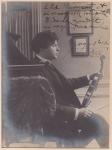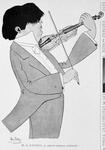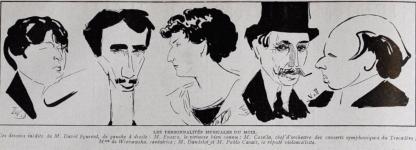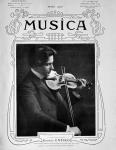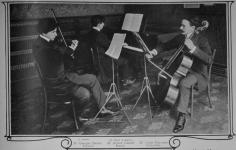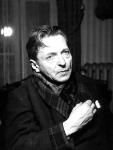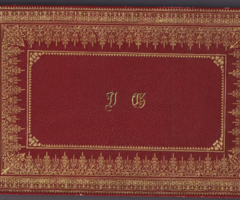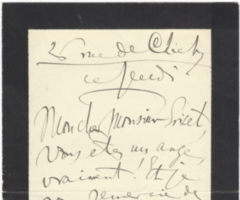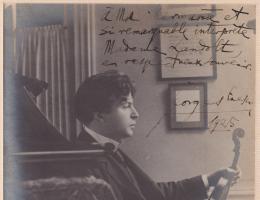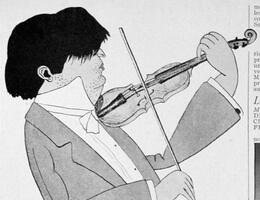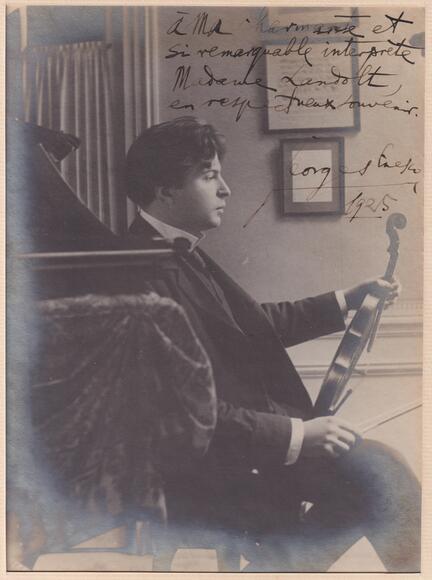
Georges ENESCO
1881 - 1955
Conductor, Composer, Pianist, Violinist
Born in Romania, Georges Enesco (George Enescu in Romanian) studied music in Vienna, where he had the opportunity to play before Brahms. He continued his training at the Paris Conservatoire with Marsick (violin), Diémer (piano), Thomas and Dubois (harmony), Gédalge (counterpoint and fugue), Massenet and Fauré (composition). His classmates included Ravel, Schmitt, Kœchlin, Cortot and Thibaud (with the last two, Enesco was to form a famous trio). His career was divided between his international activity as a violinist – he was one of the greatest instrumentalists of his time, both as a soloist and as a chamber musician – and his work as a composer. (He also conducted, mostly in Amsterdam and Berlin.) The multiplicity of his activities as a performer undoubtedly had a detrimental effect on his work as a composer; furthermore, he was always ready to serve and praise the music of others, but showed great modesty where his own compositions were concerned. Nevertheless, his output was of a very high standard. He left only thirty-three opus numbers, but some of his works are outstanding: his opera Œdipe (1931), for instance, which took him no less than a quarter of a century to complete, and his three symphonies. Enesco’s catalogue also includes songs, orchestral pieces or suites and a good number of chamber compositions. While remaining personal, Enesco’s language was varied, sometimes post-Romantic, folkloristic or close to French music, testifying to his immense culture and his supreme mastery of all aspects of music.
Scientific publications
Publication
Lettres de compositeurs à Camille Saint-Saëns
Student of

Composer, Organist, Pianist
Gabriel FAURÉ

Composer, Violinist
Martin-Pierre MARSICK
Useful links
Permalink
publication date : 13/12/23

